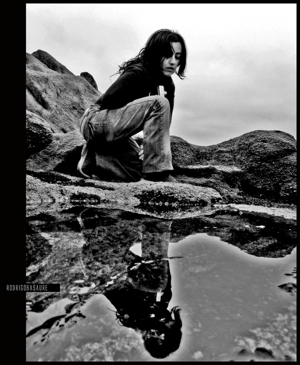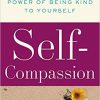Depression grinds down many qualities of well-being, among them self-acceptance. Until recently, I hadn’t spent much time being comfortable with who I was. Self-rejection had been much more familiar.
There have been many times when I felt fine with my life, but later I’d realize I had been overlooking everything too painful to face.
When I added all that in, the revised versions didn’t feel good at all. Had I been accepting me or a two-dimensional sketch?
Times of Self-Acceptance
I remember, as a 12-year old, standing outside the school I was attending and feeling good about myself, ready to face adulthood. I had friends, I was recognized academically, much respected, and I felt I had everything I needed to be an adult. World, I’m ready for you.
Jump six months ahead. I’m a scared 13-year old freshman in a big high school, without friends, without recognition of any sort, feeling lost in the hallway throngs. Self-acceptance? I was desperately anxious to figure out who or what I could possibly be in this strange place.
Another moment of wellness: I was 21, standing in a college courtyard, at peace. I was doing exactly what I wanted to do: writing, studying exciting things, dating the perfect woman.
Two years later, I was crashing and about to break on impact. I rushed to therapy, took the offered medication to level out and proceeded to pull into my awareness everything I had hidden away for 15 years: the pain, constant fear, destructiveness of family life, the emotional side of endless day-long migraines. Over the next few years, it all emerged, and I could understand how the past had shaped me.
Who Is It You’re Accepting?
That new awareness didn’t negate the past times of peace, happiness, self-acceptance, but I knew now what I’d had to forget in order to feel OK.
I had been convinced that the paralyses of anxiety and panic had been aberrations, the depression had been an identity crisis that everyone went through, the unemotional behavior had been my early maturing to adulthood. I hadn’t a hint of what these had been – signals and outcries for help and release.
Taking all this in made me realize that I could only accept the self I was aware of at the time.
It’s hardly possible to be aware of all you are. So much of you hasn’t yet been put to the test – like the 12-year old me feeling ready for the world or the 30-year old never imagining that in a year he’d be learning he could be a father.
Depression Splits You in Two
Depression adds another dimension. Swinging from wellness to illness presents you with completely different ideas of who you are.
When well, you believe you’ve recovered the real you. That depressed person was only an impersonator. But when depressed, the bleak person is no less real. You’re sure that the apparently well-adjusted one is a fake.
Can you reconcile the two and accept them both as comprising your “real” self?
Depression Blocks Discovery
Depression makes it hard to get beyond this split. It cuts you off from the relationships that could help you learn more about who you are.
You find out a lot you may not have imagined about yourself by interacting with others and understanding how they react to you. That starts early. Without welcoming, loving parents, you begin life on shaky ground. You need to be cared about, responded to, valued.
When you see that someone else values you, you’re more likely to value yourself. In a depressive spell, you isolate from the very relationships that could help you heal.
It feels internally as if there are two mutually exclusive personalities fighting for dominance. The trouble is, there’s only one person others see in their relationships.
One person whose changeable behavior is confusing at best but frequently destructive.
So self-acceptance isn’t just a matter of feeling comfortable with your inner state. It also means accepting what you’ve done to others.
The Good, the Bad and the Ugly
You have to look squarely at the harmful things you’ve done. It’s not always a matter of cognitive “errors,” all or nothing thinking or obsessing on everything done wrong. There are people you’ve hurt as well as people you’ve loved – often the same ones.
There are former friends who can’t forgive you for things you’ve done. Easy to say, that’s their problem. They’re stuck, but I’ve “moved on.”
The fact is that I did things I’m ashamed of. I knew I shouldn’t be doing them at the time. I can say I did them while depressed and out of control, but that doesn’t change the fact that I did those things. They’re as much part of me as the best moments were.
People saw both sides in a baffling combination. One day people knew me as deeply sensitive, responsive, caring about others. The next they could encounter someone who was aloof, self-serving, untrustworthy. Someone brilliant, someone incompetent. Someone to look up to, someone to dismiss. Someone inspiring affection, someone provoking anger.
I learned as much from them as I did from my self-evaluation. That meant facing the ugly behavior I had wanted to separate from myself and pin on depression. “That wasn’t the real me, and what I did wasn’t about you” was a useless rationale.
Accepting the Whole Me
I move with an inner stream of awareness, feelings, ideas, exhilaration and despair – as we all do. And mostly I’m comfortable with taking it as it comes. Yet there is a depressive spot in mind and feeling that is a self-destroyer.
Do I accept myself as I am, depression and all? By definition, you don’t accept yourself when you’re depressed. You hate the disordered you but believe that’s who you really are.
When you’re well, the challenge is to accept that other, depressed person as part of you as well.
I think you have to take that step in order to live well despite depression. Instead of shunning the depressed person, you incorporate him with this difference. There is only one you who sometimes gets depressed. It’s not either/or. There are not two mutually exclusive people inside.
But there is a greater you who can embrace the illness as part of who you are, rather than the whole of you.
To live with depression, I’ve come to accept myself as this whole being in the midst of discovery. What I don’t yet know about myself is as interesting as what I do know. That’s one of the beliefs that keeps me well.
This is an updated post from the archives.
Image by Rodrigo Basaure at Flickr.




This is very interesting. I know what you mean about the two selves. I’ve dealt with this by having one part of me talk to the other. I write to G–, though I’m not religious, and I also write out the thoughts of the inner critic who I call Krik and then write back angrily to him, asserting myself. Today I spoke lovingly to myself and angrily to the depression. Anger works for me because it generates energy to counteract the awful dullness.
Thank you for your blog.
Hi, ann –
I feel that anger can be a powerful force for good in your life when it comes from self-assertion. Depression makes me feel so small and inadequate that I become passive and assume I’m doing everything wrong. Asserting or defending myself against depression with anger has helped me a lot. In fact, I wrote a post about that when I was beginning this blog in 2007. It’s interesting to hear how it works for you.
Thanks for your comment.
John
You’ve taken a huge step by accepting yourself, depression and all. I just wrote a blog about shame and the importance of accepting yourself mental illness and all. Self-acceptance of our strengths and so-called weakness is key in our recovery. Beautifully written blog.
This line: But there is a greater you who can embrace the illness as part of who you are, rather than the whole of you seems like the center point of this essay and the essential task in overcoming depression. Most spiritual traditions teach of a higher self, a more detached being who witnesses the chaos of our pain and mistakes. Mastery increases as we learn to live as our own witness more often. This peaceful awareness within us all is capable of gentle detachment from drama, honest appraisal of actions, and reaching out to others to forgive and ask forgiveness. Your piece captures very well our experience in depression, especially the dramatic shift in self- and world-view that occurs as moods fluctuate. The observing self, the witness, is the one that stands outside those fluctuations. As alluded to by another commentator, Buddhism and other meditative paths teach one to develop the witness stance. Such practices are very healing in mood disorders, but you have captured the gist of the path already in this reflection. Thank you.
Thank you, Willspirit, for these thoughtful insights.I have found a deep healing from the peaceful awareness you so beautifully describe. Maintaining the “gentle detachment from drama,” however, has been difficult, and I’ve been searching for ways to carry the awareness into the actions of everyday life. I’ve been interested in the increasing use of mindfulness in recent therapies, mostly because they do attempt to achieve healing by embracing the most difficult situations rather than avoid them – to combine action with mindful awareness with action.
John
This is a terrific piece, and reminds me how long it took for me to learn to accept my changing moods as one part of who I was. Your reflections also remind me of my limited study of Buddhism — in particular, the idea that life begins when we let go of mental constructs (including a sense of self) and just experience what is going on in the moment. Thanks for sharing this and reminding me of that crucial lesson.
Hi, Amy –
I’m glad this post rings a (meditation) bell. I need to learn more about Buddhism. Every time I hear a reference, it’s something that goes right to the heart of things.
John
I feel like Humpty Dumpty — patching myself together just so I can get on top of the wall again, even if it means falling…again.
Hi, Donna –
I guess the humpty dumpty experience means that we know how to put ourselves back together – there’s a model in mind of at least a fragile self. All is not lost!
John
The minute I think I have found the “real” me, it all dissolves and I become this mass of anxiety and often irrational expectations for myself. Then I keep going till I reach calmness and rational thought, which lasts for a short period of time. Then my world starts shaking apart once more. I feel like I spend a lot of time trying to put Humpty Dumpty together. But I always have to climb up on that wall again so I can see everything around me, even if it means falling again. And so on it goes.
Hi –
Climbing the wall over and over again shows a lot of strength and resilience, but it does get discouraging putting all this time into reassembling yourself. I’m wondering what you mean by finding the “real” me. I always used to slide from a feeling of finally getting on top of who I was into fear of success. I usually didn’t say that to myself in so many words, but I kept undermining the good things I had done while feeling OK. I think I’ve broken that cycle now, but I think of it every time I put things off and fail to come through on promises.
Thanks for letting us know how this works for you.
John